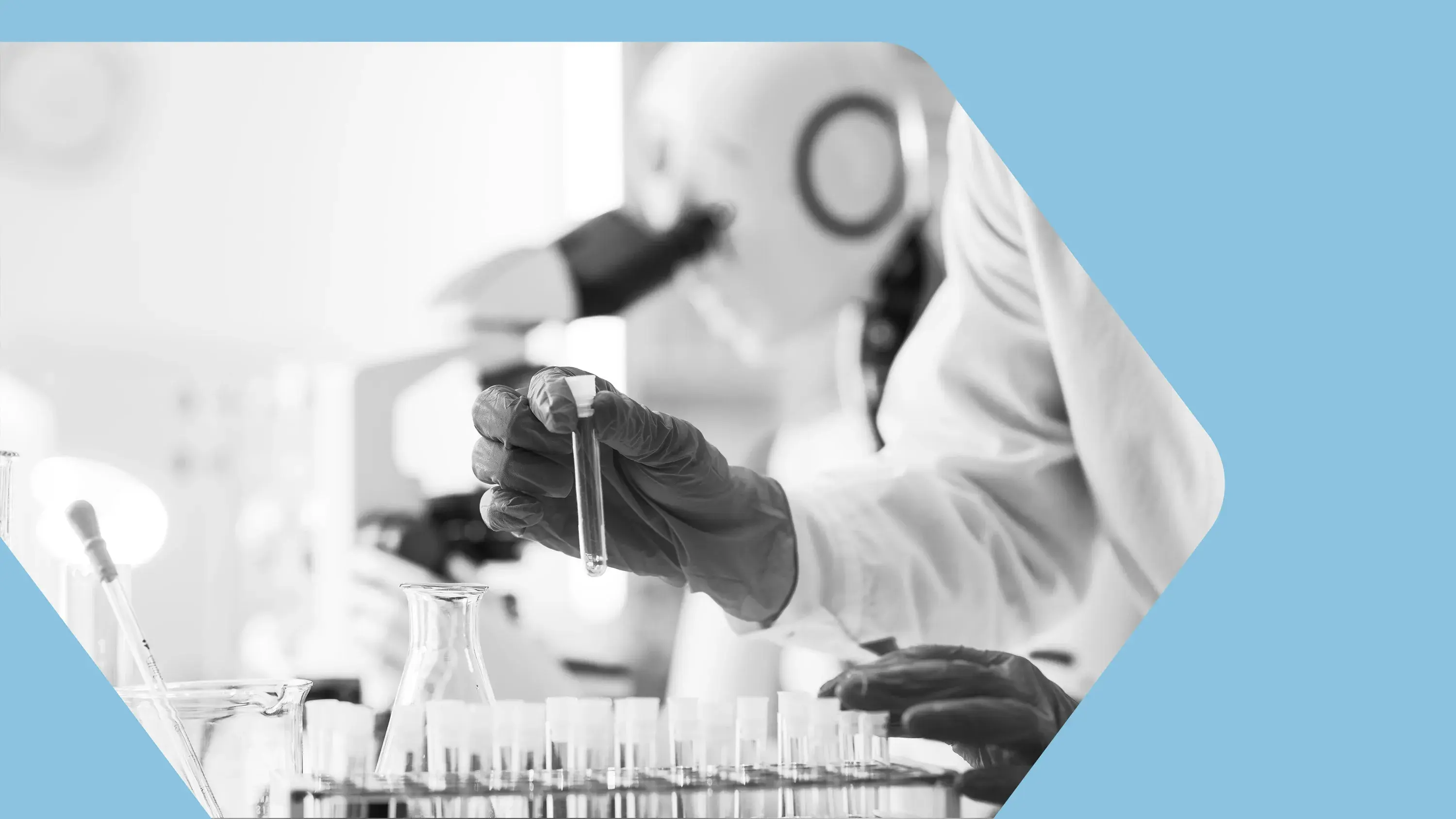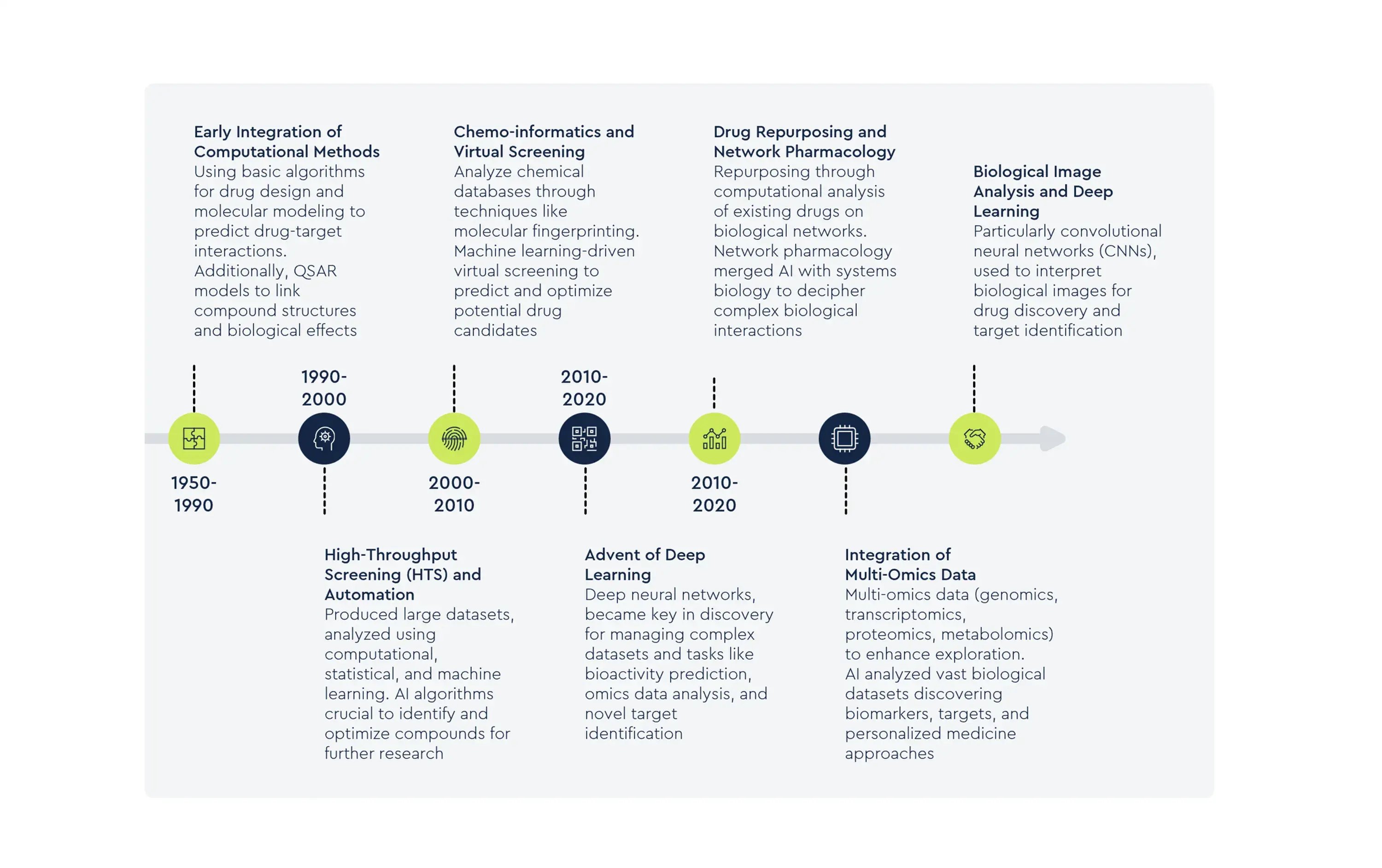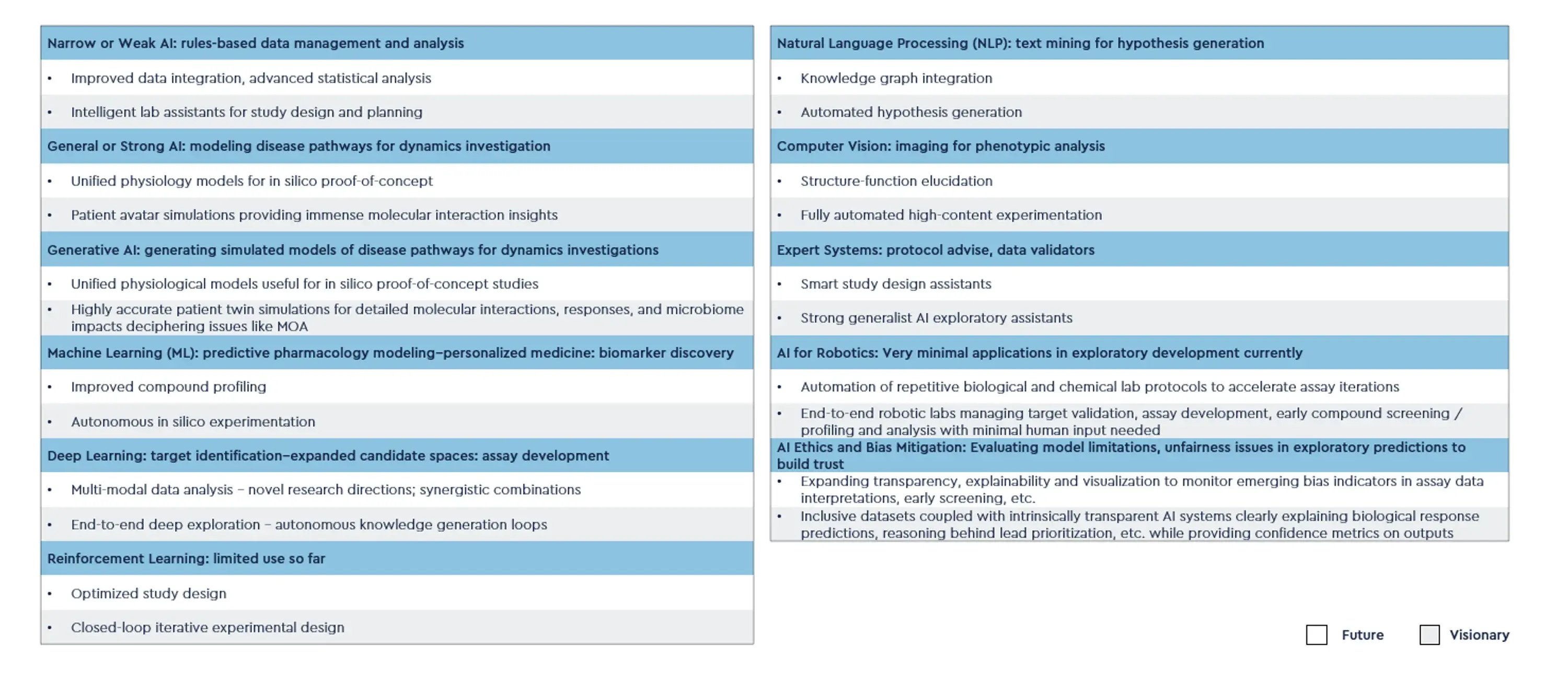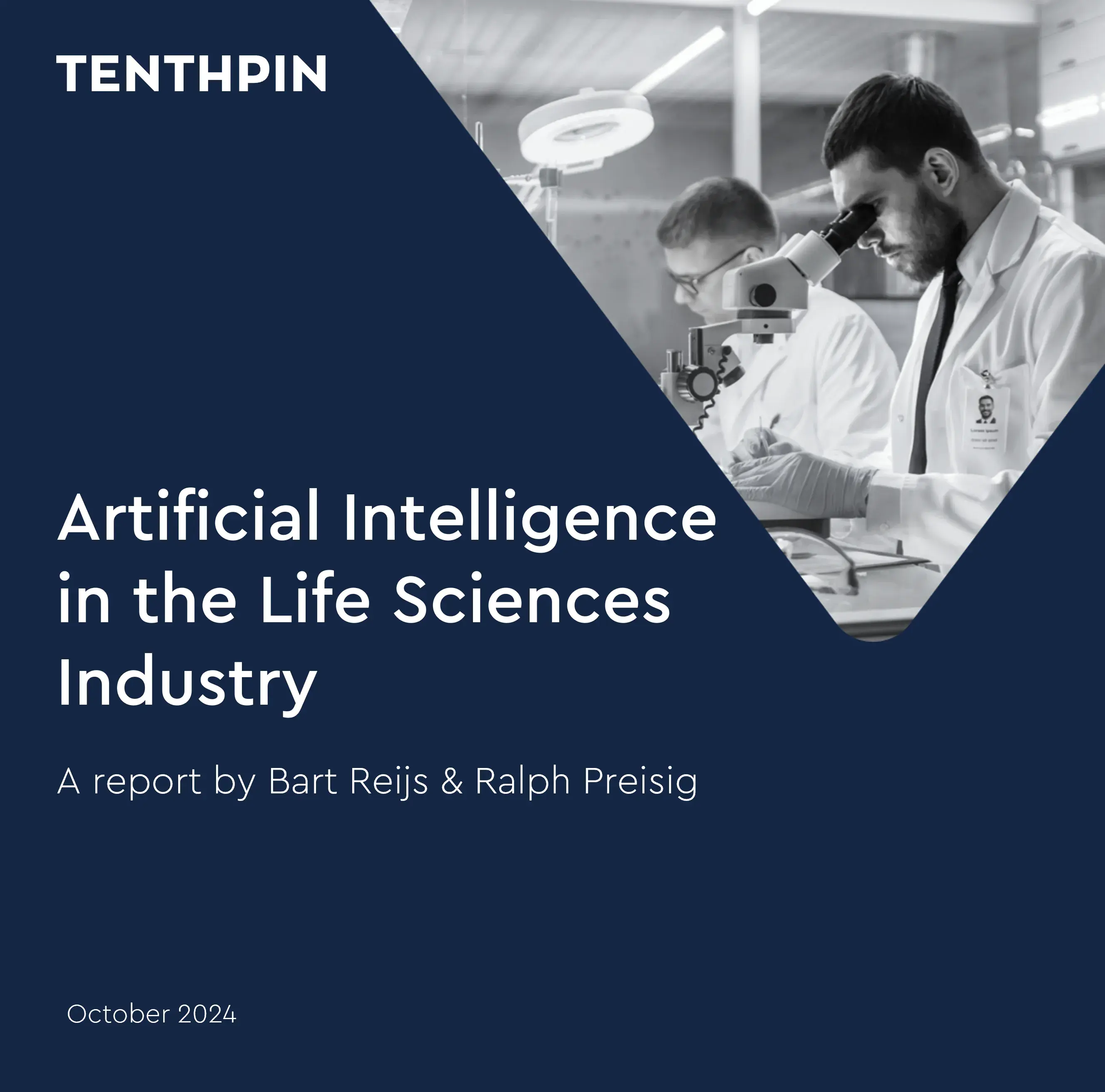AI’s Role in Drug Exploratory Development

Table of content
Exploratory drug development is a crucial early phase of the lengthy and complex drug discovery process. It involves preliminary research to identify and validate new drug targets, disease pathways, and compound leads before advancing to formal drug development. This exploratory phase faces pressing challenges around data complexity, efficiency, and making sound scientific decisions with limited information.
Revolutionizing Exploratory Drug Development with AI
Artificial intelligence (AI) has become a transformative technology in exploratory drug development. By applying advanced AI algorithms to problems like target identification, predictive modeling, and molecular design, researchers can extract insights from multifaceted biomedical data, accelerate the pace of experimentation, and unlock novel areas of exploration.
AI Transforming Early Drug Discovery
The integration of AI in early-stage drug discovery has steadily increased over the past few decades. As computational power and capabilities have multiplied, AI systems have progressed from assisting in narrow tasks to being integrated in end-to-end exploratory workflows. State-of-the-art applications include generative AI to synthesize new molecular structures, explainable AI to interpret biological mechanisms, and reinforcement learning to optimize the selection of promising compounds. Looking forward, AI will act as an invaluable tool to push the boundaries of what is possible in exploratory drug development. Smarter, faster, and more targeted early phase exploration powered by AI has the potential to transform how drugs are discovered. AI promises to unlock new frontiers in medicine by helping researchers rapidly filter through ideas to advance only the most viable drug candidates into formal development.

Selected Use Cases of AI Advances in Explanatory Development

Unlocking Exploratory Bottlenecks
The exploratory phase of pharmaceutical R&D is critical for translating basic disease insights into potential new medicine concepts to feed the pipeline. This open-ended research probes biology, assesses viability of targets, develops physiologically relevant assays, and conducts initial compound screening and optimization currently moves slowly. Artificial intelligence promises to transform exploratory efforts through data-driven hypothesis generation, experiment recommendation, and knowledge synthesis.
Current applications and demonstrated value
Many top biopharma’s and biotech’s have already implemented AI technologies across various exploratory functions with tangible benefits. AI applications are estimated to be accelerating exploratory timelines by 30-50% already, while saving substantial experimental costs. The technology is enabling teams to explore biology more intelligently and effectively.
The future: automated experimentation
As algorithms grow more powerful and data generation ramps further, AI systems will transition from passive support tools to active drivers of exploratory research through closed loop, automated in silico experimentation. Core expansions on the horizon include:
- Adaptive simulations
- Reinforcement learning systems running virtual experiments, tweaking compounds and assays for optimized results
- Integrated predictive models
- Convergent multi-modal modeling synthesizing disparate data into holistic biological system views for much sharper experiment targeting
- Autonomous robotic labs
- AI biochemists designing and completing wet lab workflows with little human input required
Weaving together these futures could enable fully automated exploratory loops, assimilating data to generate hypotheses, simulated experimental designs, robotic experiment execution, and model iteration at remarkable pace and scope beyond current science.
The vision: in Silico exploration
The most visionary outlook sees enough biomedical knowledge encoded into AI to replicate disease systems accurately for extensive simulated probing. Such an integrated computational environment powered by machine learning could transform drug exploratory R&D through:
- Virtual Patient Models: detailing disease physiology/progression for simulation
- Intelligent Trial Simulators: testing interventions dynamically
- Closed Loop Ideation: deriving new concepts/targets from results
- Cloud Laboratories: running limitless in silico assays
- Autonomous Analysis: interpreting experimental data absent bias
With rigorous verification of conclusions, such AI-directed exploration could massively accelerate learnings, while minimizing costs and enhancing reproducibility relative to traditional wet lab approaches. Capturing sufficient domain complexity remains a monumental challenge, though adaptively constructed knowledge graphs and active learning systems point towards realizing this grand vision.
Conclusion:
Unlocking exploratory bottlenecks
In summary, modern AI stands ready to unlock decades-old bottlenecks in biopharmaceutical discovery, starting with the high-potential yet high-friction exploratory research stage. Even narrowly focused predictive analytics and automation are demonstrating concrete speed, cost and productivity gains - while more expansive systems on the horizon could leapfrog both human efficiencies and imagination. Powerful combinatorial possibilities await this vital domain at the convergence of data, algorithms, and biology.

Tenthpin's Report AI in Life Sciences
This report gives an overview of the development and current status of AI in the Life Sciences industry, offer insights into the different categories of artificial intelligence, and conclude the report with practical case studies showing how Life Sciences companies are already generating business value.
INSIGHTS
Related insights
Drug discovery is a complex and time-consuming process that involves identifying and developing new medications. Traditionally,...
Everyone is talking about AI. Everyone is using AI. And every company is discussing how to leverage AI. Tenthpin has now explored...
Confirmatory drug development is a rigorous, tightly controlled phase of assessing safety and efficacy to ultimately confirm a...



